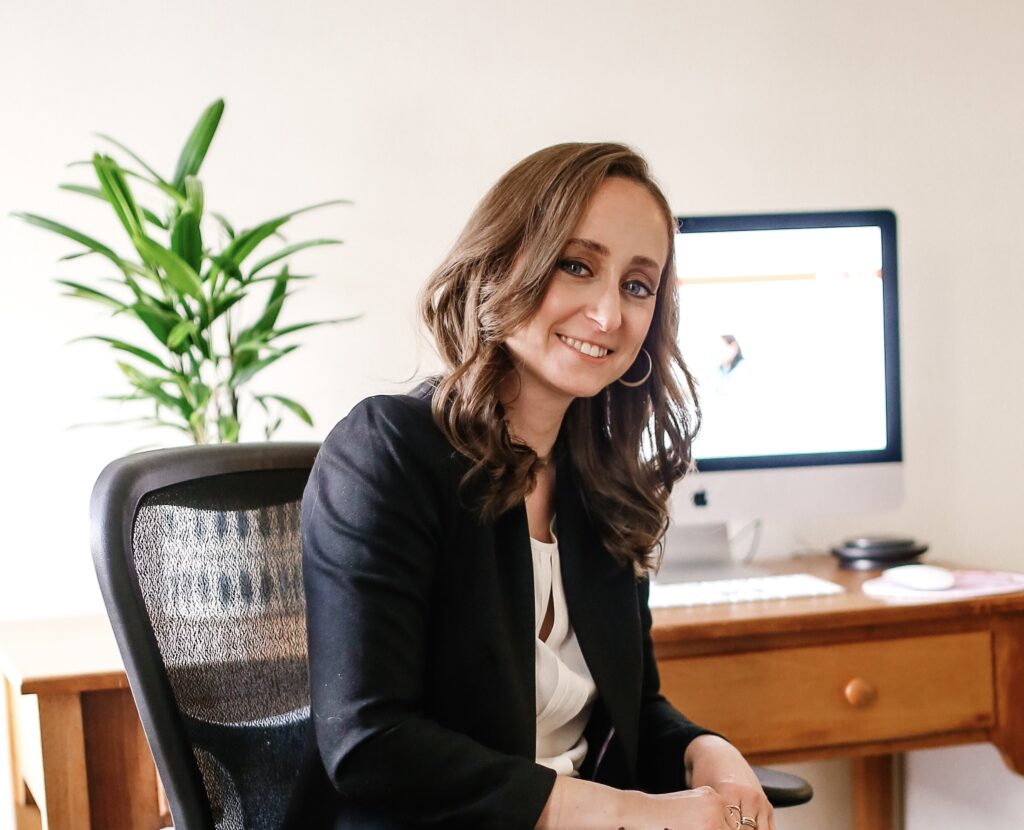Have you ever felt like your parents just really don’t get what it’s like living with a chronic illness? Have you ever felt like they don’t know what to do to support you, or that you need some space? How can you form the relationship that you want with your family when living with chronic illness?
In this podcast episode, Dr. Kate Herts speaks about one parent’s take on childhood chronic illness with Ken Herts.
Meet Ken Herts

Ken Herts is Kate’s dad. Ken spent nearly 30 years working for Dow Jones, whose primary products are The Wall Street Journal and Dow Jones Newswires. He was not a reporter, but on the business side of those publications, including as General Manager of Dow Jones Newswires, and VP Finance of The Wall Street Journal. In 1998, during the height of Kate’s illness, he was transferred to Brussels, Belgium to be Publisher of The Wall Street Journal Europe. He is now Chief Operating Officer at The Lenfest Institute for Journalism in Philadelphia, whose mission is to develop and support sustainable business models for the next era of local news.
In this Podcast:
- Ken’s overview from the parent’s perspective
- “Moving to Holland”
- Acceptance
- Ken’s advice to parents with kids with chronic illness
Ken’s overview from the parent’s perspective
Ken explains that Kate had intestinal issues from age 9 and that it took about a year for her to get diagnosed.
Kate’s biopsy was sent to various doctors who received differing opinions until they found the root cause, and could start on the proper treatment for her.
It may be common for serious chronic illness to take a while to get diagnosed … When you show up and say, “We have a problem”, they don’t immediately jump … There’s a saying in medicine, that, “If you see a hoof print, don’t assume it was a zebra, think it was probably a horse” … Because that’s [usually] more likely, so they really went through a slow process of testing for one thing after another.
Ken Herts
Throughout the process, Ken noticed that there were differences between hospitals and doctors in terms of how they would treat you and listen to you.
They put Kate on different medications, starting from low dosages to high doses of strong medicines, but none of them worked, and Kate had to get surgery.
“Moving to Holland”
The poem “Welcome to Holland” explains a parent’s feelings and experience about their children living with a chronic illness, and how they need to change their perception of life to adjust to this new reality.
Essentially, Ken, Kate, and their family had to metaphorically also “move to Holland” when Kate was diagnosed, and had to change the way that they relate to their surroundings now that chronic illness was part of their lives.
Even though there are new, positive, and rewarding ways to live and look at life while living with a chronic illness, it was still of course difficult sometimes.
I had to give in to the fact that I didn’t know what was going to happen. I mean, I had always known that everything was going to be great and that you would do great things, but by this point I had to give into the fact that, well, “Here we are” … in terms of acceptance.
Ken Herts
Acceptance
Acceptance sometimes gets a bad rep because, for some people, acceptance feels the same as “giving up” – when it’s not.
It might not be exactly what you wanted, but you can accept the situation and make it work to suit your needs and desires since it’s worth living.
I really encourage everybody who’s listening who hasn’t asked their parents about their version of your illness story, it can be so helpful!
Dr. Herts
Talk with your parents and share this process with them, wherever and however you can, so that you can lean on and support each other.
Ken’s advice to parents with kids with chronic illness
The treatment you get will depend on where you go and who you go to.
When you’re dealing with a disease that’s not fully understood, try to understand your options, even going beyond your first point-of-call, so that you have a broader picture of what you’re working with.
RESOURCES MENTIONED AND USEFUL LINKS
Connect with Ken on Facebook, Twitter, and LinkedIn.
Read Welcome to Holland
Text SPOONIE to 833-324-2041 to join our membership community and get exclusive content including a free media guide to the chronic illness experience.
Visit The Health Psychology Center of New York. Connect with them on Facebook, Instagram, and LinkedIn.
Practice of the Practice Network
Rate, review, and subscribe to this podcast on Apple Podcasts and Spotify!
CONNECT WITH ME:
Email me at: kateherts@healthpsychny.com
ABOUT DR. KATE HERTS:

Dr. Kate Herts completed her Bachelor’s of Arts at Brown University, her Master’s degree in Public Health at Harvard University, and her PhD in Clinical Psychology at UCLA. She is a licensed clinical psychologist and the Founder and CEO of The Health Psychology Center of New York, a group practice of expert psychologists providing evidence-based therapies tailored to meet the specific and urgent needs of teens and young adults with chronic medical conditions. Dr. Herts’ vision is to ultimately create a global wellness community for mental health practitioners, patients and family members dedicated to creating a better world for all people with chronic illness.
On this podcast, Dr. Herts gets personal about her experiences growing up as a lesbian millennial woman with a serious chronic illness; what she has learned from her patients and colleagues as a health psychologist; how she has built a meaningful life through it all; and how you can do it, too.

